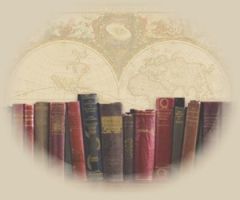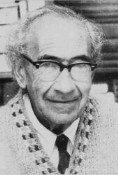Hebrew Book Review / June 21, 1973
By
Richard Flantz, HBR editor
Here is a pair of long poems by Abraham Regelson (born 1896 in White Russia, raised in the USA, settled in Israel in the 40s), poet, critic, translator into Hebrew of works by Blake, Whitman, Melville and others, author of powerful symbolic and mythic lyrical verse.
There is a tone of the sublime, of modulated ecstasy in both these poems, which are almost hymns to life and to culture, and to both of these in their broadest and richest sense. Regelson is a poet highly attuned to the multiplicities of experience and the myriad possibilities of existence constantly coming-to-be beyond the possible experience of any individual. Of these experiences, and of other awareness of them as an infinite totality expressed in various cultural traditions, he produces a poetry of chiselled beauty and extension of significance, all within the context of a single actual experience.
In the first poem, the speaker addresses a female listener. He tells her that "Idiot time" has placed a gap of some forty years between them, but nevertheless their souls can meet. He speaks to her in terms which liken the beauty of the parts of her body to all the wealth of the Torah, the Talmud, the Zohar; both share the same sublimity. He then invites her to come with him, from the noise of Tel Aviv, to a mountain in the north that he once knew, where they can climb from the rocky base to a clearing above the tops of encroaching pine-trees, to see the
Humps of hills to the south, patched in their own shadows,
Clouds of lilac, engraved with shapes of curved swords,
Some frayed, like worn-out prayer-shawls and birdless wings
and the prolonged sunset of sudden perceptions of glorious colours and shapes changing as night approaches, when his setting sun and her rising moon will kiss in a "union of opposites" as the chorus of evening stars reveals itself.
With the emergence of the stars, the vastness of the cosmic vision and the place and function of man within this cosmos are brought together into a unified harmony through the human endeavor of art and myth, and welded into a single experienced whole through the beauty, constituted by the beholder, of the real woman he is with. This is so even if the experience itself must here be an imaginary one, since the title suggests that this is above Tyre, in Lebanon, and hence the journey is physically unfeasible. The last stanza, through an extended simile Miltonic in its scope, allows all these disparate elements to be contained within the single experience. The speaker recalls a painting by Tintoretto which tells the story of how one evening while Hera slept Zeus sent Hermes to bring "the babe Alcmene wife of Amphitryon bore me" to Olympus and to place him at Hera's breast, that he might suck the milk of immortality. Hermes did so, and the babe "(He who by the name of Heracles, wonder-hero, would be known)", sucked and bit fiercely, waking the goddess, who in disgust with her husband's infidelities cast the babe off her breast. From the force of the sucking which had been violently broken off, there
Burst a mighty stream of milk from the goddess' breast,
Shooting forth into the skies of night,
Pouring out in streaming torrents,
And is the milky way forever…
So from the dress of your beauty, ladder-like,
A jet will leap to the heights, will spread, to encompass
The bears, Pleiades, the lyre, the virgin and the swan
And a second splendour to their glory lend.
Thus the present experience of imagination contains a memory of a work of art which contains a myth which contains the cosmos and which is paralleled by the lived experience which arouses the associations. The poetic imagination, when infused with culture and confronted with real beauty, contains the universe, which it beautifies anew.
The second poem of the pair, "Two Swans and a River", develops and deepens the central themes which were begun in the first. Like the last stanza of the first poem, it tells a story, also focussed on an artist, though this time on an artist's experience rather than on a work of art. The story is about W. B. Yeats, "the crown of Anglo-Irish song". It begins with Yeats alone in a poor rented hut in Ireland one spring evening, after days of wandering around the countryside and giving poetic form to all that his senses have absorbed and his imagination has woven. Drowsing, the poet half-dreams that he is sitting in a hall in a towered castle, surrounded by his prize possessions, works of art and literature.
And he gave thanks in his soul and said; How good my lot
That the gods of Greece are among my delights, and I owe them no sacrifice,
That from the churches of Rome and Byzance I have acquired beauties,
And far from me be the terror and the zeal of the captives of the Cross.
All gods are my joys, for there is no god I serve.
Polished is my spirit like a mirror of steel to respond
To each desire, tremor, longing, dread, to absorb them and reflect them…
Yeats then recalls how in this same room, where he has often been in his dreams, he was visited recently by the comrade of his youth Michael Robartes, who had brought with him "drugs of the East', and, in the scent of incense, had paraded before Yeats' eyes his vast pantheon of gods, those of Egypt, Babylon, Israel, Olympus, India, not leaving out Mary and her son and adding to them the eternal figures revealed to the great poets: Helen, Beatrice, Faustus, Hamlet, Lear, who were also, said the visitor, among the gods of truth. And then the ghost of Robartes tells Yeats that he, Yeats, has been found worthy of becoming one of the divine singers of gods, and offers to take him to join their number. Yeats, intoxicated by the incense and the visions and the praise, is almost tempted, but then, "perhaps" to protect his pure, unique individuality, with great efforts tears aside the charms and stands "alone, apart, strong". Robartes and the gods vanish.
And now the tower vanishes too, and the dreaming poet finds himself under the stars of night. Here what he sees leads him to realize that although he has always been free of petty human yokes, delighting himself in poetic tapestries of beauty, he has not attained that highest union, that "fire of the soul merging in divine radiance", which his vision has now suggested to him as possible. His moan of despair at his loss wakes him, and he is again in his poor hut. He goes to the window, and in the pale light of before dawn sees what looks like a centaur approaching. When it gets closer the shape divides into a man and a horse. The man who has come to visit him is Gogarty, his friend and disciple. Gogarty tells him why he's come: some three years earlier, trapped by the British in a hut, he had made his escape by jumping into the icy waters of the Liffey. With shots bursting around him, he had prayed, and pledged to the river that if he got across safely he would bring back a pair of white swans to grace the river. Now he has come to fulfil his vow, and asks Yeats to join him and witness the act
The two go to the Liffey, passing through glories of plant-life and bird-song. At the river-bank, Gogarty speaks three quatrains in offering, and likens the male swan to that mysterious great bird which had descended upon Leda. Gogarty asks Yeats to open the cage, the sun shines down on the scene as the two swans float majestically on the river, and the two friends know that the Liffey has accepted the gift.
Here too, then, as in the previous poem, the myth of the divine fertilization of man has been complemented by the idea of reciprocity, of the human completion of the divine, the cosmic and the beautiful. If we recall that for Yeats the swan was, among other things, the symbol of creative power and imagination, then here Regelson, through Yeats, symbolically completes the cycle which Yeats never totally completed himself. (In "The Wild Swans at Coole" Yeats at one point expressed his desire and his sense of his own limitations thus: "Would I could cast a sail upon the water"; Regelson has him actually cast a pair of swans upon the water, in a poem). Instead of just being inspired by the swan, here it is the poets themselves who bring the image of poetic inspiration, these male and female lives, and put it into the river. And just as Heracles, sucking fiercely for his life's milk helped to bring the milky way into being, and as the girl's ladderlike beauty lent glory to the stars, so Gogarty, in his involvement with a human struggle for national liberation, is brought to include the great poet of human experience in the performance of an act which symbolizes man's bringing of beauty and meaning to the world, aligning himself with the forces of reproduction and continuity in spite of, and in response to, the irrational evil of war and oppression, and the original inhumanity of nature. And this act, with its emphasis on particular, lived, experience, given meaning by the power of symbolism which has its roots in culture, is shown to be of more significance and value than the submersion of the self in mystical union, which Yeats had longed for in his dream, or the exaltation and elevation of the self represented by Robartes' temptation. In this climax, as in images in preceding stanzas, Regelson shows that it is in each individual portion or person of the universe doing his or its unique work that the actual physical tapestry of the universe is woven, and that it is in the poetic expression of this by the individual poet that the reciprocity is made known to men through its embodiment in culture.
|



